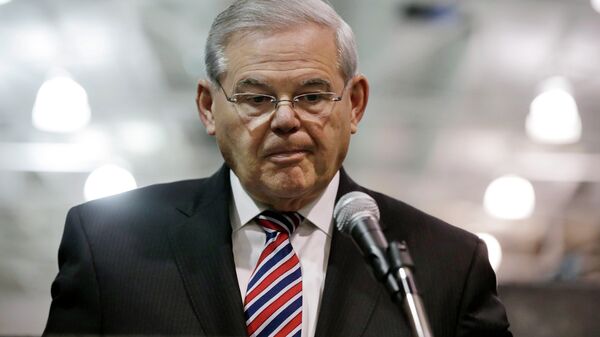Menendez filed a motion to be given breaks from his trial (expected to run six to eight weeks) because he had a "constitutional duty" to be in Washington and serve his constituents. This includes voting on major legislation on issues such as raising the federal debt ceiling, reforming the tax code and renewing the National Flood Insurance Program to assist in the rebuilding after the devastating Hurricane Harvey.
US District Judge William Walls categorically rejected the motion. "The court will not serve as concierge to any party or lawyer," Walls wrote. "The motion — from a practical perspective — is nigh frivolous." He added that the motion was seemingly calculated to impress the jurors with the public importance of the defendant senator and his duties."
Senator he may be, but Walls argued that Menendez deserved "no more and no less deference than any other defendant," be they a college professor, construction worker or orthopedic surgeon.
Furthermore, Walls said that he cannot possibly decide which pieces of legislation are important enough to pause the trial, as this would be an "explicitly political determinations" — which as a judge he has vowed not to do.
However, Walls added dryly, that Menendez "need not appear in court if he does not wish or wants to be absent. He may voluntarily absent himself. This is his prerogative."
Menendez stands accused of accepting major donations as well as gifts (such as flights on a private jet and stays at five-star Paris hotels) from ophthalmologist Salomon Melgen in exchange for pushing legislation that would benefit Melgen's business pursuits. In April 2015, he was indicted on corruption charges: one count of conspiracy to commit bribery and wire fraud, one count of violating the Travel Act, 16 counts of bribery, three counts of honest services fraud, and one count of making false statements.
Melgen has also been accused. Both men have pled not guilty to all charges. Neither Menendez's lawyer Abbe Lowell nor his press secretary Tricia Enright replied to requests for comment.
The investigation involves 20,000 pages of admissible evidence stretching back to 2006, when Menendez began his first term as senator. From 2013 to 2015, Menendez served as the chairman of the highly influential Foreign Relations Committee in the Senate but stepped down after his indictment.
More than just a corruption trial, the case could have significant political ramifications. Individual states make their own procedures for appointing a replacement when a Senate seat is vacated — and in New Jersey, the state governor can unilaterally appoint a replacement.
Menendez is a Democrat, but New Jersey Governor Chris Christie is a Republican. Were Menendez to be convicted and lose his Senate seat, it seems likely that Christie would appoint a Republican to replace him — bolstering the number of Republicans in the Senate from 52 to 53.





